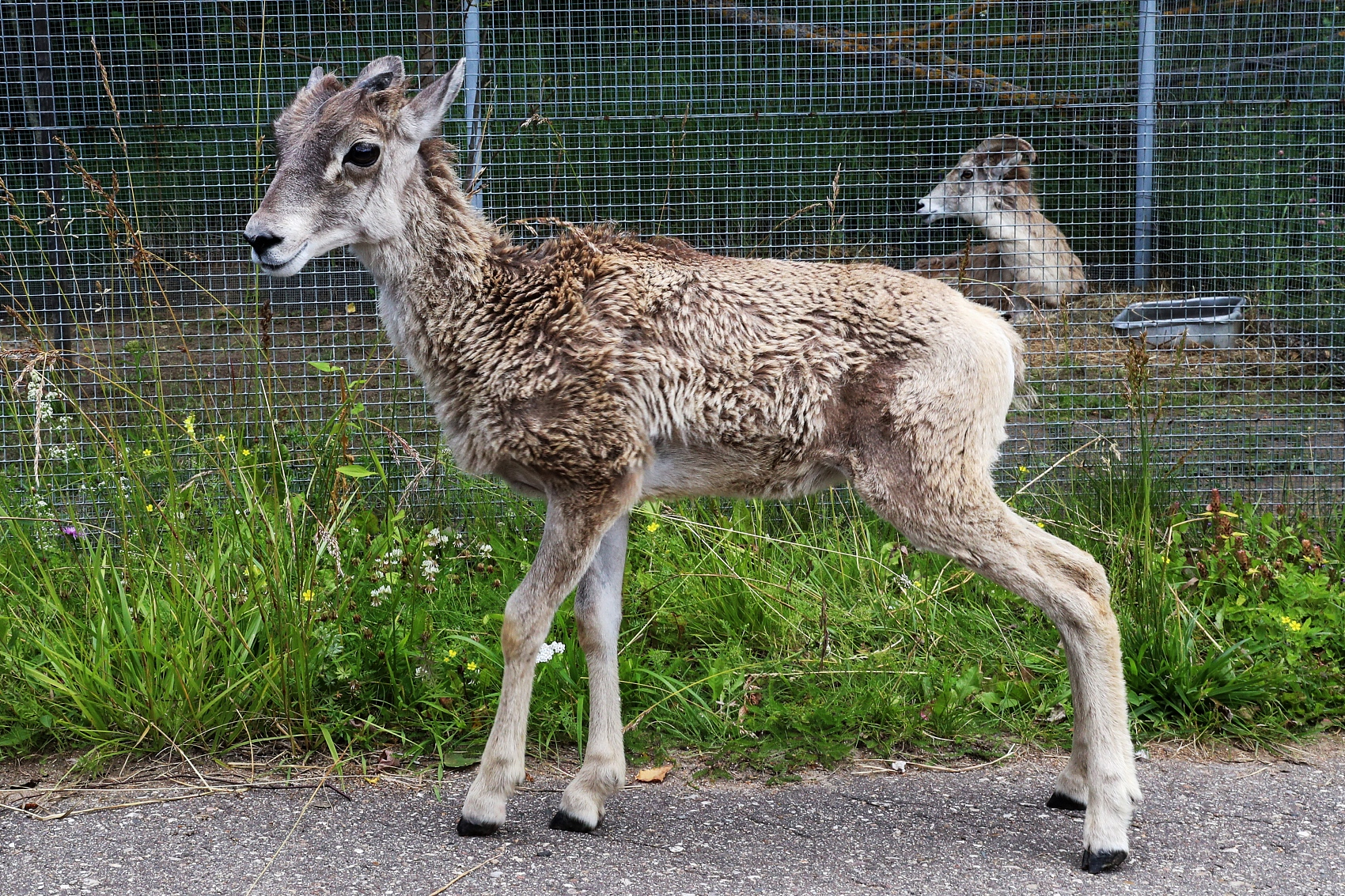
Chinese researchers have identified several potential ecological corridors of Marco Polo sheep, a subspecies of argali sheep, in northwest China's Xinjiang Uygur Autonomous Region.
Led by Yang Weikang, a researcher with the Xinjiang Institute of Ecology and Geography under the Chinese Academy of Sciences, the team has identified potential ecological corridors for the sheep in Taxkorgan wildlife nature reserve after three years of field observation and data analysis.
The research can potentially moderate some of the negative effects of habitat fragmentation and reduce risks of extinction caused by inbreeding and the loss of genetic diversity, according to scientists.

A Marco Polo lamb at Moscow Zoo's Center for Rare Animal Species Reproduction. /VCG Photo
Marco Polo sheep mainly roam in the juncture areas on the Pamirs with an elevation of 3,500-5,000 meters in the region adjacent to the borders of Afghanistan, Tajikistan, Pakistan, Kyrgyzstan and China.
The sheep was named after Italian explorer Marco Polo, who discovered the argali in Xinjiang when he arrived in China traversing the Pamirs over 700 years ago.
Their habitats got divided into smaller, isolated patches due to factors ranging from global climate change to human activities over the past century.
Marco Polo sheep are under second-class state protection in China, which led to the creation of the Taxkorgan wildlife nature reserve dedicated to the sheep's protection in 1984. Their number in China has grown to around 3,000, making up 15 percent of the world's total.

The skulls of two Marco Polo sheep in northeastern Afghanistan. /VCG Photo
"In recent years, the government has strengthened efforts to return farmland to forests or grassland, close all mining firms and restore the damaged environment in the nature reserve," Yang said.
China has also launched a cross-border project with its neighbors to protect Marco Polo sheep.
In May, a seminar on the sheep's cross-border protection was held in Xinjiang. Scientists from China and its neighboring countries gathered for international exchange and cooperation on the species' conservation, management and research.
"We will focus more on identifying cross-border corridors of Marco Polo sheep in the future to help connect fragmented habitats and reduce the risk of the species' extinction," Yang said.
(Cover image: A Marco Polo sheep with its child. /VCG Photo)
(If you want to contribute and have specific expertise, please contact us at nature@cgtn.com.)

Copyright © 2018 CGTN. Beijing ICP prepared NO.16065310-3
Copyright © 2018 CGTN. Beijing ICP prepared NO.16065310-3